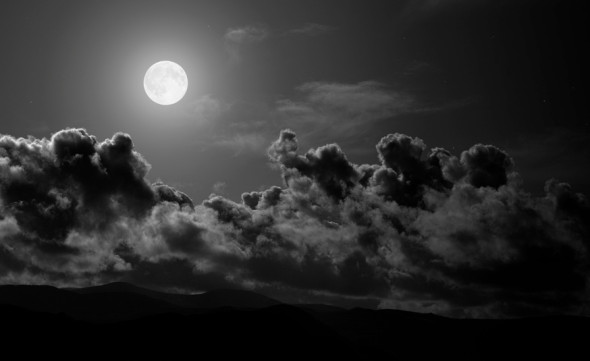by Elizabeth Rabia Roberts
“As long as you do not know how to die and come to life again,
you are but a poor guest on this dark earth.” —Goethe
It is likely, if you are past midlife, that you have had at least a mild experience of “The Dark Night of the Soul.” You may have had months or even years during which you lost your sense of purpose and confidence about the direction of your life. There may have been feelings of deep sadness and grief over what appeared to be lost. During this time you were overcome by existential questions: “Who am I? Why am I here? What is Life’s meaning?” And despite your prayers, you remained lost in a fog of unknowing.
As painful as these dark times are, without them we cannot participate fully in the great rhythms of the Earth. Winter, after all, is not a failed summer. It is necessary for the renewal of life. There is a lineage of both religious and secular literature reminding us that times of total darkness are a natural part of the human condition. To descend, submit and die—the openness to being acted upon—is the essence of the human experience when we come face-to-face with the transpersonal. It is a defining part of the spiritual life.
A singular aspect of every major life change is the need to move from our thinking capacities to our deeper knowings—those laid down in the right brain before the gifts of the left rational side were even recognizable.
For millennia our ancestors acknowledged and honored these transformational experiences through ceremonies and myths about a descent into the “underworld” where our old identity is stripped away. There we must stumble blindly waiting for a new “dark light” that guides us to our rebirth into greater awareness and wisdom.
Unfortunately, our present western culture prefers to hide death and medicate unhappiness, making these natural rites of passage all the more difficult. Our commercial media teach our young that happiness is a reliable measure of success in life. And grief, sadness, uncertainty, and loss are all signs of a failure to grasp “the American dream.” In our culture, growth and fulfillment are defined by accumulating, not by learning to let go.
Despite these erroneous messages, we cannot avoid change; and if change is to transform, it will inevitably take us into the unknown—that place where our old ways of navigating life no longer work. Here we intuit a different set of messages: gifts of insight left by those who have gone before us. These can help reveal the underlying patterns that characterize every transformative journey.
In my first public workshop since my accident, we will use the energies of the winter season to work experientially with our own dark night, exploring the terrain and transformational power of not-knowing and surrender. Please join me, if you can, for this weekend workshop. I will be right there in the dark light with you.
Love and Dust,
Rabia



Another non-Buddhist statement by an alleged NAROPA Buddhist (also the same person on KGNU’s “Hemispheres” a couple years ago fearlessly proclaimed the Afghanistan War was “good”–Basically Good?–because it “created jobs”!)
Anyway, see Chogyam Trungpa’s KARMA SEMINAR, the article at the back entitled “Karma and Rebirth” where he says: “re-birth is the same thing as re-death.” (P. 52.) That is hard to comprehend for theists.
Rabia…
Go figure,it’s 2016 and I finally find a post about the Dark Night that’s more substantial than the usual tin & foil commentary.Meanwhile,hoping the 2013 retreat went well and would love knowing if you’ve written similar articles.
Sincerely…Rob Two-Hawks
(…within the February Appalachian Darkness)
I have noticed you don’t monetize your blog, don’t waste your traffic, you can earn extra cash every month
because you’ve got hi quality content. If you want to know how to make extra bucks, search for:
Ercannou’s essential adsense alternative